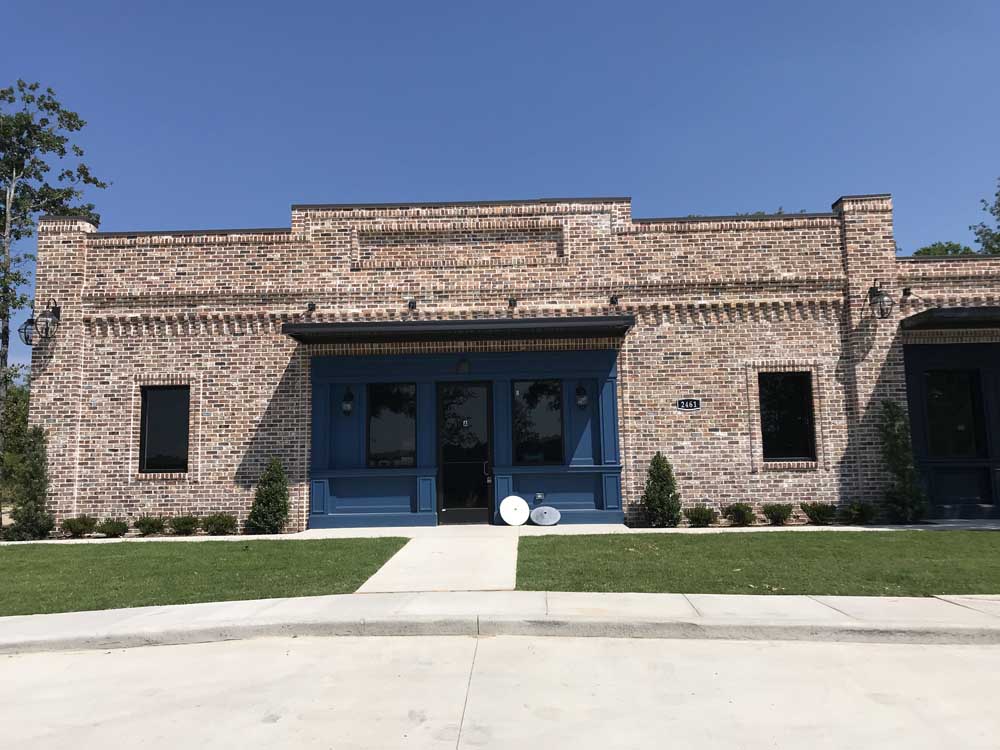Tyler pottery studio provides stress relief, creativity to students
Published 4:13 pm Saturday, July 18, 2020

- Adjusting Sails Dirtworks, which began offering classes on July 6, is located at 2461 Earl Campbell Parkway in Tyler.
Jeff Clement, owner of a new pottery studio in Tyler, said throwing clay on the wheel and creating pots, plates and more is a therapeutic process for people to de-stress.
His studio, Adjusting Sails Dirtworks, located at 2461 Earl Campbell Parkway in Tyler, just opened and he began offering classes on July 6.
At the studio, students learn how to throw clay on the pottery wheel and create functional pots, plates, trays and mugs that are dishwasher and microwave safe as well as some decorative pieces.
Clement, who used to be a special education teacher, said he grew to love pottery as a form of stress relief. He’s been throwing clay for 22 years.
“It was real therapeutic. I got to put everything else in my work life away,” he said. “It was very relaxing. I just really kind of fell in love with it.”
Clement moved to Tyler in 2018 after running a pottery studio in Salt Lake City, Utah since 2010, where he had about 30 students a month and rented out space for artists.
When he moved to East Texas due to his wife’s job, Clement researched and learned that there weren’t many places to learn about pottery in the Tyler area.
“It’s exciting for us to give people a place to play with clay,” he said.
Clement said he enjoys being able to share his skills with students and educate them about clay. Working on pottery helps people be present in the moment and get away from the stress inside their head.
Katie Tidwell, of Tyler, said she’s taken about two classes at Adjusting Sails and Clement has provided an accommodating, welcoming and teachable environment.
Before this studio opened, Tidwell would drive to Dallas for pottery classes.
While she does still travel to Dallas sometimes, Tidwell now has somewhere much closer, as Adjusting Sails is about six minutes from her house.
Tidwell began her pottery work with polymer clay a few years ago. She said she enjoys pottery because it’s very satisfying to make something out of nothing.
“I’ve always had an affinity for playing in the mud,” she said. “I started and I fell head over heels in love with it.”
She’s made bowls and mugs so far in her pottery career.
“I’m pushing and learning everything I can,” Tidwell said. “Probably going to figure out how to make platters next.”
Even when pot projects fail, they become clay again and can be recreated into something new. And that can be a relaxing and therapeutic experience, according to Tidwell.
“It’s nice to be an artist and not have to create something every time,” she said.
After working 50 hours a week, time at the studio provides Tidwell a creative and relaxing space.
“It can be such a really great added skill,” she said. “It’s 100% worth it to give it a shot.”
At Adjusting Sails, Clement said he started with about six people as students through word-of-mouth and people seeing his sign from neighboring businesses like Relax Lab and True Vine Brewing Co.
“Once word gets out, we’ll have more people,” Clement said.
Due to COVID-19, attendees fill out a health questionnaire as a precaution to prevent spread of the virus. The studio has 10 pottery wheels that are distanced from one another.
“A lot of people come in because they want to try it,” he said.
Classes cost $165 per month for four three-hour classes. A bag of clay is provided for each student, while a tool kit costs $20 if they don’t bring one, Clement said.
Students also have studio time available from noon to 6 p.m. from Tuesday to Saturday to work on projects.
Clay Process
Attendees shape their project on the wheel and learn how to trim the pot or make a handle for a mug.
The clay creation first goes into a bisque firing, which is the initial firing of pottery before being glazed — the process of decorating the pot into artwork.
After a glaze, the pot then goes into a gas kiln at a temperature of 2,380 degrees. The pot has to cool down for a day or so, Clement said.
He said the studio also offers Raku firing, a Japanese style of pottery, for more decorative pieces.
Clement said his favorite part of the studio is being able to continue teaching and seeing his students progress in their pottery skills.
“I get to play in the dirt every day,” he said. “If you love what you do, you don’t work. For me, it’s exciting to teach where there’s not a lot of studios to go to.”
The studio will also open a gallery this week for people to shop for homemade pottery, he added.






